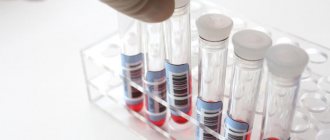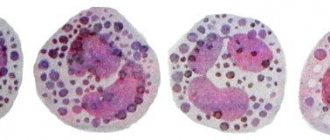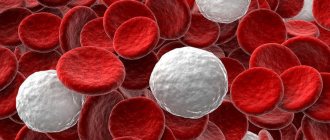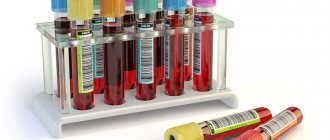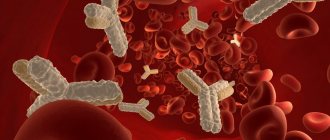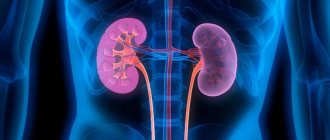What causes high creatinine?
If the functioning of your kidneys is interrupted or impaired by any condition, this can cause your creatinine levels to increase. Some of the most common causes of chronic kidney disease or elevated creatinine levels in adults include:
- Diabetes
- High blood pressure
- Urethral infection
- Kidney infections
- Abnormal muscle breakdown due to rhabdomyolysis
- Drugs such as cimetidine
- Consuming large amounts of dietary meat
Let us now look at the warning symptoms that may arise due to high creatinine levels in the blood.
Folk remedies to reduce creatinine levels
Thanks to our nature, we can create a lot of various remedies that will help us bring creatinine levels back to normal and significantly improve overall health.
Teas with a diuretic effect
One of the most effective methods for normalizing creatinine levels in the blood. They must be consumed every day. To achieve the result, 2 cups of tea per day are enough. Studies have shown that such infusions have a good effect on kidney function, and this is explained by more frequent urination.
Nettle infusion
This plant can have a diuretic, laxative and expectorant effect on the body. Nettle leaves should be brewed separately. But it is best to brew this tea together with other plants - knotweed and calendula. You need to take 3 tbsp. l. each ingredient, throw into a large 500 ml glass and pour boiling water over it. Then let it brew for half an hour. You should take tea throughout the day at any time.
Important!
Expectant mothers are prohibited from drinking such teas, because they stimulate uterine contractions, which can result in pre-labor. For thrombophlebitis and varicose veins, they are also prohibited for use.
Sage
As Hippocrates said, sage can give a person strength and prolong his youth. It's all about listospermate B, which is part of the plant and has a positive effect on kidney function and stimulates the removal of creatinine from the body. To improve the effect, it is worth making an infusion of herbs with sage, which should contain: burdock, sage, birch bark and dandelion leaves. You need to take 4 tbsp in equal proportions. l. and pour 250 ml of boiling water. Drink 3 tbsp. l. every evening.
Lingonberry leaves
Pour 70 g of lingonberry leaves into 300 ml of boiling water and place in a water bath for half an hour. The decoction should be drunk three times a day, 100 ml. Lingonberry leaves are also used together with string, chamomile, dandelion or motherwort leaves, and violet. Use in equal parts.
Rosehip leaves
Brew berries and leaves with dill seeds, hawthorn leaves, bay leaves and parsley. 2 tbsp. l. Pour 300 ml of boiling water over this collection and let it brew for 4 hours. You need to drink 6 tbsp. l. 6 times a day.
Another rosehip tea. Brew together with pomegranate peel. Place the ingredients in equal quantities into a thermos and pour half a liter of boiling water. Leave for half an hour and filter. Drink tea throughout the day.
Important!
Rosehip has a lot of beneficial properties that have a positive effect on the functioning of all body systems. But, it should be given to children with great caution, since at a young age it can cause an allergic reaction.
Dandelion root
Grind the roots thoroughly, then in a volume of 1 tbsp. l. mix with the same amount of violet flowers, St. John's wort and celandine and pour half a liter of boiling water, place in a container in a water bath and bring to a boil. Then remove the infusion from the stove and leave for 2 hours. Drink this tea 15 minutes before each meal.
Mint and chamomile
Prepare the ingredients in a proportion of 3 tsp, add 1 glass of cold water and send to boil in a water bath. Bring to a boil and leave for one hour. Then strain the infusion and take it twice a day - after waking up and before going to bed.
Oak bark
In order to normalize creatinine levels, use oak bark along with other herbs. There are several options for preparing them. For the first, you need to take the same amount of oak bark and bearberry. Then 2 tbsp. l. This collection should be poured with a glass of water at room temperature. Boil the herbs in a water bath over low heat, bring to a boil, then strain and take 5 tbsp. l. throughout the day.
In the second option, add birch bark and its buds to oak bark. Mix all this in equal proportions, 5 tbsp each. l. and pour 1 liter. water. Boil the collection for half an hour over low heat. After boiling, strain and take half a glass seven times a day.
Remember!
In addition to using the above drinks, it is important to monitor your water balance throughout the day. The normal volume of fluid is 1.5-2 liters of water per day. Dehydration should not be allowed, as this leads to an increase in creatinine levels, because the substance is excreted in the urine. But don't forget about excess water. Otherwise, additional stress will be placed on the circulatory system, which will result in stress on the kidneys.
Rice for breakfast
Creatinine can be lowered with a regular rice breakfast. Moreover, such a meal consists only of boiled rice, without any other ingredients. To prepare the dish you need to take 7 tbsp. l. rice, fill them with cool water to such a level that the liquid covers the grains by about 2 cm and leave the product to swell overnight. When you wake up in the morning, rice should be boiled and eaten without the use of salt or oil. If you regularly make yourself such a breakfast, then after 15-25 days your creatinine level will be brought back to normal.
What are the symptoms of high creatinine?
The symptoms of high blood creatinine and kidney dysfunction often have similar symptoms. Some people may have severe kidney disease and high creatinine levels without any symptoms, while others usually have symptoms such as
- Swelling or inflammation
- Shortness of breath
- Loss of body fluid
- Fatigue
- Nausea and vomiting
It is important to have your kidneys checked periodically if you have any of these symptoms.
Normal level of creatinine in human blood: table by age
The product level is measured in µmol/l, and its norm is:
| Age | Norm |
| Up to 7 years | 45-105 |
| From 7 to 20 years | 27-62 |
| Adult men | 74-110 |
| Adult women | 44-80 |
If these standards are higher, there is a serious danger to the health of the body. Firstly, this is a signal that the excretory function of the kidneys is severely impaired. Secondly, various toxic substances began to accumulate in the blood. If nothing is done as soon as possible, there is a risk that the problem will affect liver function.
Important!
Situations that are much more serious are often observed, in which acute cardiovascular and renal failure develops, advanced problems in the gastrointestinal tract, as well as problems in the form of skin diseases, and serious disorders of the nervous system. If you do not resort to emergency measures, everything can end in death.
Diagnostics
If your blood test shows that you have high creatinine levels, you may have the following tests:
- Blood Urea Nitrogen (BUN) Test – This test checks your kidney function by measuring the amount of urea nitrogen in your blood. Too much or too little urea nitrogen often hints at kidney problems.
- A basic metabolic test (BMP) is a combination of tests that evaluate the functioning of the body's major functions.
- Comprehensive Metabolic Test (CMP) - This test is a series of 14 tests that gives your doctor important information about the health of your kidneys, liver, electrolyte and acid-base balance, etc.
What is creatinine?
Creatinine is one of the metabolites of the biochemical reaction of amino acid-protein metabolism in the body. The substance is formed in the muscular system and released into the blood. The end product of the creatine phosphate reaction takes part in the metabolic breakdown of complex substances into simpler ones.
Methylglycocyamidin is excreted from the body by the kidneys and is an important indicator of the functioning of the urinary system.
Creatinine controls important processes in the body:
- forms an energy reserve;
- provides the brain with energy;
- has a beneficial effect on the cardiovascular system;
- takes part in reducing inflammatory processes in the body;
- promotes muscle growth;
- normalizes acid-base balance;
- controls the functioning of the central nervous system;
- increases life expectancy.
How to Reduce Creatinine Levels Naturally
Apple vinegar
Ingredients
- 1 tablespoon apple cider vinegar
- 1 glass of warm water
- Honey
Recipe
- Add a tablespoon of apple cider vinegar to a glass of warm water and stir well.
- Add some honey to this solution and consume daily.
How to reduce creatinine in the blood with kidney failure
Many patients are interested in what drugs are used to reduce creatinine in the blood. It should be understood that with chronic renal failure or acute renal failure, high creatinine in the blood is a reflection of impaired renal function. In this regard, treatment is aimed at eliminating the causes of acute renal failure or chronic renal failure and correcting impaired renal function.
How are patients with acute renal failure treated?
In the acute course of the disease, the most important role in treatment is played by the elimination of the pathological condition that caused renal failure (sepsis, infectious-toxic shock, CRASH syndrome, peritonitis, acute blood loss, etc.)
Plasmapheresis is also performed. The volume of plasmapheresis performed depends on the severity of the patient’s condition and the severity of intoxication symptoms.
Plasma removed during plasmapheresis is replaced with fresh frozen solutions of plasma, albumin, etc.
According to indications, blood transfusions or blood substitute solutions may be performed. Intravenous drips of prednisolone are also used. Exchange transfusions are performed in patients with severe intravascular hemolysis and a hematocrit below twenty.
Additionally, anti-shock therapy and detoxification are carried out. For bacterial infections, antibiotic therapy is prescribed. Antibiotic dosages are reduced according to the severity of renal failure.
According to indications, in the early stages of development of acute renal failure, it is advisable to use mannitol® or furosemide® to eliminate anuria.
Under the control of creatinine levels, Adsorbix® is prescribed.
In addition to drug therapy, a low-protein diet is prescribed (the caloric content of the diet is provided by fats and carbohydrates), and the intake of salt and liquid is limited. The volume of orally consumed fluid depends on the patient's urine output and the volume of intravenous infusions.
Salt intake should be limited to 0.2-0.3 grams per day, and protein to 0.5-0.6 grams per kilogram of body weight. The volume of fluid consumed = the volume of the patient’s urine output over the past day + three hundred milliliters.
Additionally, homeostasis disturbances are corrected.
Patients with urea levels above two grams per liter, as well as decompensated forms of metabolic acidosis or acute uremia, are prescribed hemodialysis or peritoneal dialysis.
Dialysis is contraindicated in patients with hemorrhages in brain tissue, gastric and intestinal bleeding, or arterial collapse.
Peritoneal dialysis is contraindicated in patients with adhesions in the abdominal cavity, as well as in cases where the patient has recently undergone abdominal surgery.
Expert answers to readers' questions
What does it mean if I have hypothyroidism and high creatinine?
Hypothyroidism causes an increase in blood creatinine levels, likely due to a decrease in glomerular filtration rate (GFR). However, these changes develop quickly and in most cases are reversible.
How can I increase hemoglobin in case of high creatinine (female)?
In some cases, high creatinine levels can cause low hemoglobin levels. This occurs mainly due to decreased production of erythropoietin in the kidneys. You can increase your intake of vitamins B6, B12, B9 and C to increase your hemoglobin levels. You can also increase your iron intake through diet or supplements and purchase additional chitosan supplements to improve hemoglobin production in the body.
Established standards
The amount of creatinine in the blood of women largely depends on several factors:
- age;
- muscle mass size;
- physical activity, sports;
- sudden weight gain or loss;
- pregnancy (in the early stages and during toxicosis)
- nutrition and diet (considerable consumption of foods high in protein).
Although these factors have an impact on creatinine levels in the human body, they are by no means insignificant.
Depending on age, creatinine levels vary:
- up to one year – 55-59 µmol/l;
- from 1-5 years to one year – 31-52 µmol/l;
- from 5-12 years – 34-60 µmol/l;
- in adolescence from 12-16 to 48-70 µmol/l;
- from 16-20 years to 51-81 µmol/l;
- over 20 – 50-97 µmol/l;
- after 50 years – 55-88 µmol/l;
- over the age of 60 years, the norm is 60-89 µmol/l.
Fact!
In men, the normal level of the substance in the blood is much higher and reaches 110 µmol/l.
It should be noted that the creatinine content in urine in women varies from 87 to 107 ml/min. If creatinine is elevated, you need to pay attention to this, find out how to reduce it, and in no case ignore this factor.
Types of inspections and preparation for them
Creatinine can be tested in both blood and urine. These tests will help evaluate your kidney function. Serum creatinine is a test that takes blood and then sends it to a laboratory for testing to find out how much of it is in the bloodstream.
Knowledge of the blood test allows the doctor to calculate the creatinine level, as well as age, gender, and determine the glomerular filtration rate (GFR). GFR is a measure of kidney function. A low GFR, like an elevated serum level, does not always indicate kidney disease. Creatinine output measures how much of it is eliminated from the body, or how well the kidneys filter out waste.
A blood test involves collecting blood from a vein in the arm. Once enough blood has been collected, the sample is sent to a laboratory for analysis. These tests are safe and minimally invasive. You may not want to avoid eating or drinking before a blood test. The doctor reports the results within a few days after testing.
Recommended! It is best to discuss any medical conditions and any family history of kidney disease during the blood test.
Urine creatinine analysis usually ranges from 955 to 2936 mg per day in men. Protein to Creatinine Ratio: Determines the amount of protein excreted in the urine per day and eliminates the need to collect a daily urine sample if the values are normal. With a decrease in kidney function, the excretion of urea and creatinine also decreases, and the concentration in the blood of both substances increases.
A 24-hour volumetric test measures the amount of urine produced in a day. The test used to check kidney function is called 24-hour urine output. The test is carried out by collecting urine in a special container for a full 24-hour period. The container should be kept cool until the test is returned to the laboratory. Collecting a urine sample does not pose any known risks. The urine sample must be accurate. This means that the urine must be collected properly.
Note! You may be asked to fast overnight. Some studies have shown that eating protein before testing can temporarily increase creatinine levels. If a 24-hour urine sample is collected, it is important to retain all urine produced during that time period.
Creatinine tests are safe and minimally invasive. A blood test is a low-risk procedure. However, there are some minor risks, including: fainting at the sight of blood, dizziness, soreness and redness at the puncture site, bruising, and infection.

